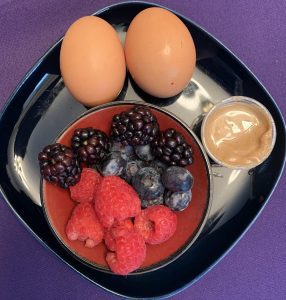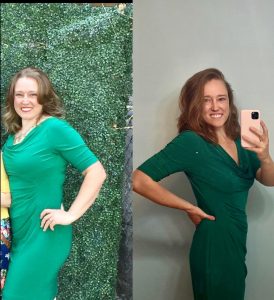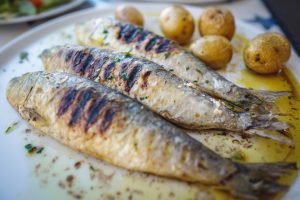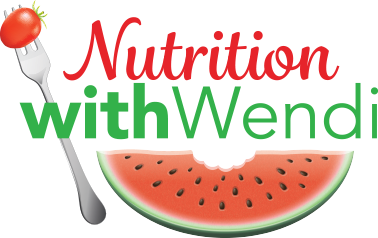
It seems like everyone is on a diet these days. In fact, many have spent their entire lives trying to lose weight and are chronically dieting. According to the CDC nearly one-half of adults have tried to lose weight within the last 12 months. So, what gives? If everyone is dieting why are we also facing obesity and weight gain across the world? According to the CDC the prevalence of obesity in 2018 was 42.4%. Does that surprise you? How can this be? Let’s look at another shocking statistic. The weight loss industry grew at an estimated 4.1% in 2018, from $69.8 billion to a whopping $72.7 billion. The market is now forecasting growth of 2.6% annually through 2023 according to the Food Research & Action Center .
So, why are facing rising obesity numbers? Why are so many dieting yet not being successful? What if products, programs and organizations do not want you to lose weight? What if they are not giving you the right information to make the best choices for a sustainable diet? The diet industry is full of myths, misinformation and premium trash guidance. People are often instructed to do all sorts of expensive, reckless, restrictive, fear driven and crazy things that lack merit, evidence and efficacy. However, there are several effective strategies that are evidence based when it comes to living a healthier lifestyle and shedding those pounds for good. I am going to share them with you today. Something I work closely on with my weight loss clients is basic, fundamental habits for life-long health that are sustainable. Remember, if our methods are not sustainable our results won’t be. It is time to get back to the basics, with healthy habits.
1.Consume whole eggs for breakfast 
Eating whole eggs, yes, the yolk included has a surplus of health benefits which also include weight loss and weight management. Studies have illustrated that eggs can help decrease the number of calories consumed in the next 36 hours as well as lose greater weight and body fat (1). Another more recent study found that after consuming eggs for breakfast, overweight and obese subjects had a lower energy intake in comparison to eating cereal for breakfast (2).
If you do not love eggs, that is totally okay! The takeaway is that a high-quality source of protein and healthy fat for breakfast will more than likely keep you satisfied, help with calorie control, reduce cravings and feel more energized than the traditional breakfast cereal or grain.
Great quick & nutrient dense breakfast option (Avocado, egg scramble with spinach, Greek yogurt, berries and peanut butter).
Follow Wendi on Twitter and Instagram for meal planning ideas and guidance!
2.Learn and exercise portion control
Being aware and mindful of appropriate portions of protein, fat, carbohydrates and even refined sugars is key for eating less to create a calorie deficit to lose weight. Counting calories isn’t fun and can be quite tedious so learning appropriate serving sizes of the main food groups is the best way to be successful whether you are out to eat, on-the-go, at home, or at a birthday party. I work with many to understand the value of their portions and how it affects their choices and even sleep later.
A simple guide for each meal:
- Healthy fats: 1 tbsp. (thumb as a serving size)- oils, butter, avocado, cheese, nuts, seed oils
- High-quality protein: 3-4 oz. (deck of cards as a serving size) – fish, chicken, lean beef, turkey, tofu, beans, dairy and pulses
- Vegetables and fruits: 1 cup or half of the plate
- Whole-grains: ¼ of the plate- whole grains, 1/3 cup of oatmeal
Context is key as always, those that are more active, athletes or require greater energy needs due to infections, wound healing or other situations where more energy is needed such as oncology. You can’t manage what you don’t track so it is important to be mindful of portions and in many cases keeping a food diary, taking photos of your meals or tracking in an app to help you lose weight (3).
You are more likely to choose a healthier food if you’re aware of how many calories are in something. For example, measuring your serving of peanut butter. Many assume they are consuming the serving size but in fact they are doubling it. 2 tbsp. of most peanut butters are 190 kcal, imagine if you are consuming 4 tbsp. in a sitting and doing that every day, every week of every month for a year. This equates into an additional 190 kcal/day which can lead to 1,330 kcal unaccounted for at the end of the week. Weight-gain is inevitable if you are consuming more calories than you are burning. 3,500 kcal are equivalent to one pound and this could easily be the case for many without being aware of portions
3. Always keep a cooler in your car along with healthy snacks to fill it with
Having nutrient dense foods available and accessible can help prevent you from eating something lower in nutrition and higher calorie should you become hungry. As you have learned, protein is important for increasing satiety and can help manage your weight.
Some great options to keep on hand include:
- Beef jerky
- Hard boiled eggs with carrot sticks
- Turkey roll-up wraps in spinach
- Peanut butter and celery sticks
- Cheese slices and green pepper slices
- Sliced bell peppers and hummus
- Cottage cheese with banana slices
- Berry spinach protein shake
- Apple with to-go nut butter
- Protein bars
- Greek yogurt parfait with berries in a to-go container or mason jar
4. Combine resistance training and aerobic exercise
One of the biggest myths out there is that lifting weights makes you “big” or bulky. Studies have shown that resistance training increases your calories burnt at rest (resting energy expenditure), supports lean mass and when combined with aerobic exercise is an effect fat loss strategy (4, 5). Resistance exercise is critical for building healthy strong muscles and bones as well as decreasing your risk for disease later. Resistance training also increases muscle growth when combined with appropriate protein intake. Another study involving 40 post-menopausal women were able to decrease their body fat combining resistance training and a higher-protein diet (6).
The research supporting resistance training and aerobic exercise provides great motivation to get moving! If you’re interested in engaging in activity or ramping up your exercise regimen for the first time be sure to work with a qualified fitness expert who holds a credible certification or has experience as a fitness professional to develop you a plan. Please contact me directly for guidance on a fitness program!
Also, please look at one of my power lifting clients, Molly who dropped > 30 lbs. through proper diet, aerobic and strength training. Her great progress photo is shown. Molly worked daily on creating healthy habits, consistency with her protein intake and managing portion control. Her physical transformation is inspiring, but her mental and spiritual growth is second to none!
5. Follow a high-protein diet
According to the American Heart Association, adults trying to lose weight and maintain weight loss should eat no more than 30% of total daily calories from fat and less than 7 percent from saturated fat. Currently, the recommended Dietary Allowance (RDA) for protein is a measly 0.8 grams per kilogram of body weight. The RDA refers to the amount of a nutrient you need to meet your basic nutritional requirements. Many confuse the RDA and how to make recommendations to their patients, client and athletes. The RDA is really the minimum amount you need to keep from getting sick, not the actual amount you should consume each day. For example, an average adult should consume roughly 25-30 grams of protein per meal, according to Protein Summit 2.0. Furthermore, research by the Protein Summit 2.0 indicated that 1.0 -1.2 grams per kilogram of body weight per day is beneficial for healthy metabolic function.
I have written about the low RDA for protein and why more is needed to sustain muscle and health in a previous blog published on my website, here . Growing research has indicated following a high-protein diet can help people lose weight, improve body composition, build lean mass, increase satiety and help maintain a calorie deficit over time to further support weight loss maintenance. 
By eating more protein, 25-30 grams per meal can help reduce hunger, suppress appetite which can help decrease undesired snacking leading to a calorie deficit. When trying to lose weight it would be beneficial to replace excess carbohydrate choices with high-quality protein snacks like Greek yogurt, string cheese, hard boiled eggs, beef jerky, turkey slices or even protein shake. Research is mixed on the precise figures, but the available research has supported protein has a much higher thermic effect compared to carbohydrates (20-30%) and (5-10%) respectively (7).
Lastly, consuming a casein rich food before bed can also help support muscle growth, recovery, appetite suppression, weight loss and weight management. Casein is the main protein in milk products, and it is considered a “slow digesting” protein. Not to be confused with whey protein isolate which is a fast digesting protein that should be consumed around training sessions and can serve as meal replacement during times of calorie restriction (8). Since casein protein is slow release it can reduce the rate of digestion and support fat loss. Not only does more protein help increase satiety and energy expenditure but it can also help with appetite suppression in the later hours. A study found that taking casein before bed resulted in 25% higher satiety levels the following day (9). Greater satiety will yield greater results when it comes to weight loss.
See list of high-quality protein sources to compare with carbohydrates Protein and Carbohydrate handout .
Get your 7-9 hours of rest each night
Ever notice you tend to move less, have limited motivation to do much beyond your daily work tasks, eat more unhealthy foods that are high in sugar or even calories when you do not sleep well? If you’re feeling sleepy at work, you grab another cup of coffee and the cookies in the pantry hoping for a “burst of energy” but actually makes you feel even more tired. You then later skip your usual walk breaks and even the workout you had planned to do. If this is you, you are not alone. Sleep debt is like a high interest rate credit care that if it continues to accumulate you will not be able to pay it off and you crash.
Think you can catch up on sleep lost and it will not affect you or your weight? Think again, a study examined moderate sleep restriction on body weight, body composition and metabolic factors in individuals following a caloric restricted diet. The study found that one hour of sleep restriction on five nights per week led to decreased proportion of fat mass loss despite restricting calories (11).
Insufficient sleep derails your weight loss efforts in many ways. Leptin is the hormone that controls your appetite, and when you are sleep deprived you have less leptin. A surplus of grehlin plus little leptin is a fast track or weight gain. A 2010 study found increased hunger, a shift in energy use, less calories expired and less weight loss in participants who slept 5.5 hours (10).
It’s more than safe to say there is a connection between sleep and weight. Strive for 7 or more hours each night to support good energy levels, metabolism, food and activity choices and overall health. The industry will say, “sleep is for the weak” just take this pill, but you know now know differently.
7. More water, especially before meals 
Many are very aware how important water is for health, wellness, weight loss and appetite control yet it is commonly touted that you shouldn’t consume water before meals. A study found that drinking 500 mL of water 30 minutes before each meal combined with a calorie-controlled diet led to greater weight loss in overweight and obese middle-aged adults (12).
Water is essential for nutrient and oxygen transportation, lubricating joints, regulating body temperature, protecting organs and tissues, dissolving minerals and nutrients to make them accessible to your body and helping the liver flush waste products (13).
- Work to increase your water intake upon waking by having a 8-20 oz. water bottle by your bed.
- Strive to consume 16 oz. before meals.
- 20 – 24 oz. of water between meals
- 10 oz. before bed to support good digestion
Increased water intake is associated with better weight control and weight management (13). So drink up!
Bottom line:
We need to stop relying on poor information given out by celebrities, influencers who lack credibility. Instead of spending money on pills, powders, challenges and false promises invest in your daily habits. Get more sleep, drink more water, learn portion control, eat balanced meals and stop giving up on yourself. Take control of your habits and implement the strategies in this article that the diet industry doesn’t want you to know. Sustainable weight loss is about controlling your appetite and consuming more protein and getting rest is a simple way to do it! The secret is out, and it is not the next celebrity cleanse. Your habits should support the future you are trying to create. If you are ready to stop saying “day one” or “one day” contact me, and let’s work together to create a plan for success!
In good health,
Wendi Irlbeck, MS, RDN

Wendi Irlbeck, MS, RDN, is a registered dietitian nutritionist, and performance coach. Wendi utilizes evidence-based science to tailor nutrition programs for athletes to optimize performance, minimize health risks, and enhance recovery from training while focusing on injury prevention. She partners with parents, sports performance staff, and special needs and recreational athletes to offer nutritional guidance and optimal athletic performance and lifestyle plans. Wendi works remotely and currently operates as a traveling dietitian. Wendi works with clients of all levels and ages across the US as well as Canada and the UK. You can find more about Wendi and scheduling an appointment with her on her website .
Follow Wendi on Twitter and Instagram for nutrition, health and fitness inspiration.
Resources:
(1)Vander Wal, J. S., Gupta, A., Khosla, P., & Dhurandhar, N. V. (2008). Egg breakfast enhances weight loss. International journal of obesity (2005), 32(10), 1545–1551. https://doi.org/10.1038/ijo.2008.130
(2)B Keogh, J., & M Clifton, P. (2020). Energy Intake and Satiety Responses of Eggs for Breakfast in Overweight and Obese Adults-A Crossover Study. International journal of environmental research and public health, 17(15), 5583. https://doi.org/10.3390/ijerph17155583
(3). Burke, L. E., Wang, J., & Sevick, M. A. (2011). Self-monitoring in weight loss: a systematic review of the literature. Journal of the American Dietetic Association, 111(1), 92–102. https://doi.org/10.1016/j.jada.2010.10.008
(4) Ho, S. S., Dhaliwal, S. S., Hills, A. P., & Pal, S. (2012). The effect of 12 weeks of aerobic, resistance or combination exercise training on cardiovascular risk factors in the overweight and obese in a randomized trial. BMC public health, 12, 704. https://doi.org/10.1186/1471-2458-12-704
(5)Hunter, G. R., Byrne, N. M., Sirikul, B., Fernández, J. R., Zuckerman, P. A., Darnell, B. E., & Gower, B. A. (2008). Resistance training conserves fat-free mass and resting energy expenditure following weight loss. Obesity (Silver Spring, Md.), 16(5), 1045–1051. https://doi.org/10.1038/oby.2008.38
(6) Miller, T., Mull, S., Aragon, A. A., Krieger, J., & Schoenfeld, B. J. (2018). Resistance Training Combined With Diet Decreases Body Fat While Preserving Lean Mass Independent of Resting Metabolic Rate: A Randomized Trial. International journal of sport nutrition and exercise metabolism, 28(1), 46–54. https://d6 oi.org/10.1123/ijsnem.2017-0221
(7) Westerterp K. R. (2004). Diet induced thermogenesis. Nutrition & metabolism, 1(1), 5. https://doi.org/10.1186/1743-7075-1-5
(8) Kinsey, A. W., Cappadona, S. R., Panton, L. B., Allman, B. R., Contreras, R. J., Hickner, R. C., & Ormsbee, M. J. (2016). The Effect of Casein Protein Prior to Sleep on Fat Metabolism in Obese Men. Nutrients, 8(8), 452. https://doi.org/10.3390/nu8080452
(9) Ananda Hochstenbach-Waelen, Margriet AB Veldhorst, Arie G Nieuwenhuizen, Margriet S Westerterp-Plantenga, Klaas R Westerterp, Comparison of 2 diets with either 25% or 10% of energy as casein on energy expenditure, substrate balance, and appetite profile, The American Journal of Clinical Nutrition, Volume 89, Issue 3, March 2009, Pages 831–838, https://doi.org/10.3945/ajcn.2008.26917
(10)Nedeltcheva, A. V., Kilkus, J. M., Imperial, J., Schoeller, D. A., & Penev, P. D. (2010). Insufficient sleep undermines dietary efforts to reduce adiposity. Annals of internal medicine, 153(7), 435–441. https://doi.org/10.7326/0003-4819-153-7-201010050-00006
(11) Wang, X., Sparks, J. R., Bowyer, K. P., & Youngstedt, S. D. (2018). Influence of sleep restriction on weight loss outcomes associated with caloric restriction. Sleep, 41(5), 10.1093/sleep/zsy027. https://doi.org/10.1093/sleep/zsy027
(12) Handbook of Non Drug Intervention (HANDI) Project Team (2013). Pre-meal water consumption for weight loss. Australian family physician, 42(7), 478.
(13) Popkin, B. M., D’Anci, K. E., & Rosenberg, I. H. (2010). Water, hydration, and health. Nutrition reviews, 68(8), 439–458. https://doi.org/10.1111/j.1753-4887.2010.00304.x
